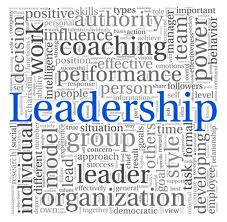 In today’s hard-charging, data-driven world, words are used more sparingly than ever before. Texting and Twitter have reduced speech ‘2’ abbreviations and 140-word sound bites. Emails have replaced face-to-face meetings, and many view salutations and closings in these messages as quaint and, oftentimes, superfluous. Yet despite this dramatic reduction in discourse, experience (often backed by research) reveals that day-to-day, words (and how they’re used) do still matter.
In today’s hard-charging, data-driven world, words are used more sparingly than ever before. Texting and Twitter have reduced speech ‘2’ abbreviations and 140-word sound bites. Emails have replaced face-to-face meetings, and many view salutations and closings in these messages as quaint and, oftentimes, superfluous. Yet despite this dramatic reduction in discourse, experience (often backed by research) reveals that day-to-day, words (and how they’re used) do still matter.
Boost Your Leadership Skills with This Simple Phrase
Leaders are, by definition, dynamic, take-charge individuals. You see a problem and you swing into action. Yet according to a recent Inc. article, you’ll often get better results from your employees if you hold your thoughts and let them bring a solution to the table. Bill Marriott, founder of the Marriott hotel chain, summed it up simply, asserting that the seven most powerful words that can be invoked in business are: “I don’t know…what do you think?”
The next time you’re faced with a workplace challenge, refrain from giving your employees an answer to the problem at hand. Instead, take a step back, allow team members to offer solutions, and then recognize their contributions accordingly. You’ll build esprit de corp among your staff, fuel enthusiasm for tackling new problems, and develop a cohesive team that generates solutions and approbations for individual contributors…AND you.
The Magic Words
We’ve all done it–admonished a child for forgetting to utter the ‘magic words.’ Yet increasingly, it seems like adults are forgetting the power of ‘please’ and ‘thank you’ as well. Dashed off in haste, an email directive to ‘Follow up with a client’ becomes a terse command, when the leavening agent of a simple
“Please” enables the request to land more gently.
Nor should “Thank You” be neglected. According to a recent Harvard Business Review blog post by Mark Goulston, M.D., F.A.P.A., these two words never go unnoticed. A simple ‘thanks’ is never off the mark, Goulston notes, but if you really want to make an impact, he recommends acknowledging individuals with a “Power Thank You:”
- Thank them for something they specifically did that was above the call of duty.
- Acknowledge to them the effort (or personal sacrifice) that they made in doing the above.
- Tell them what it personally meant to you.
You’ll end up with a grateful employee who’s more likely to go above and beyond for you in the future. And as if that’s not enough, Goulston reports that a well-placed ‘thank you’ can also have a ripple effect, not only heartening the recipient but also making her more likely to ‘pay it forward’ by helping someone else.
The Need for ‘No’
We all like to be helpful– there in a pinch, ready to put in the extra hours to push a project across the finish line or assist a colleague in a time of need. As women, we’re especially prone to the ‘helpmate syndrome.’ But as Peter Bregman pointed out in his recent HBR Blog post, sometimes the most helpful thing you can say is ‘no.’
Bregman outlines a series of nine practices that can help the most inveterate ‘yes user’ learn to incorporate this declination into her vocabulary, and in so doing, carve out time and space for those things that really deserve an affirmative response. Among Bregman’s recommendations:
- Know your no. First and foremost, get clear on what’s most important to you, and what’s not. If you don’t know what you’re making time for, you’ll have little incentive to turn down tasks that pull you off course.
- Say no to the request, not the person. When saying ‘no,’ there’s no reason to throw the baby out with the bathwater—you’re responding to a particular issue, not the person making the ask. Make it clear you’re rejecting the request, not the requester.
- Explain why. While there’s no need to go into great detail as to why you’re declining the request, you should offer the person making the request a plausible explanation—you’ll both feel better about the exchange.
- Practice. You’ve heard it on countless occasions–practice makes perfect. Learning to say ‘no’ efficiently and effectively is no different. Start small—say ‘no’ to that second helping of mac and cheese at dinner—and grow from there. As Bregman points out, “It sounds crazy, but building your no muscle helps.”
- Be prepared to miss out. No one likes to be the odd woman out—if you say no to Saturday night’s dinner invitation with friends in favor of a quiet evening with a good book, you may be disappointed when you hear the rave reviews of the ‘once in a lifetime meal’ you missed. Just remember, you said no for a reason—your evening at home allowed you precious downtime to clear your mind for the week ahead. Life is a series of tradeoffs.
The exchanges we have each day have consequences, some that affect us for minutes or hours, others that linger for much longer. As you move through your day, what words will you remember, and why?





